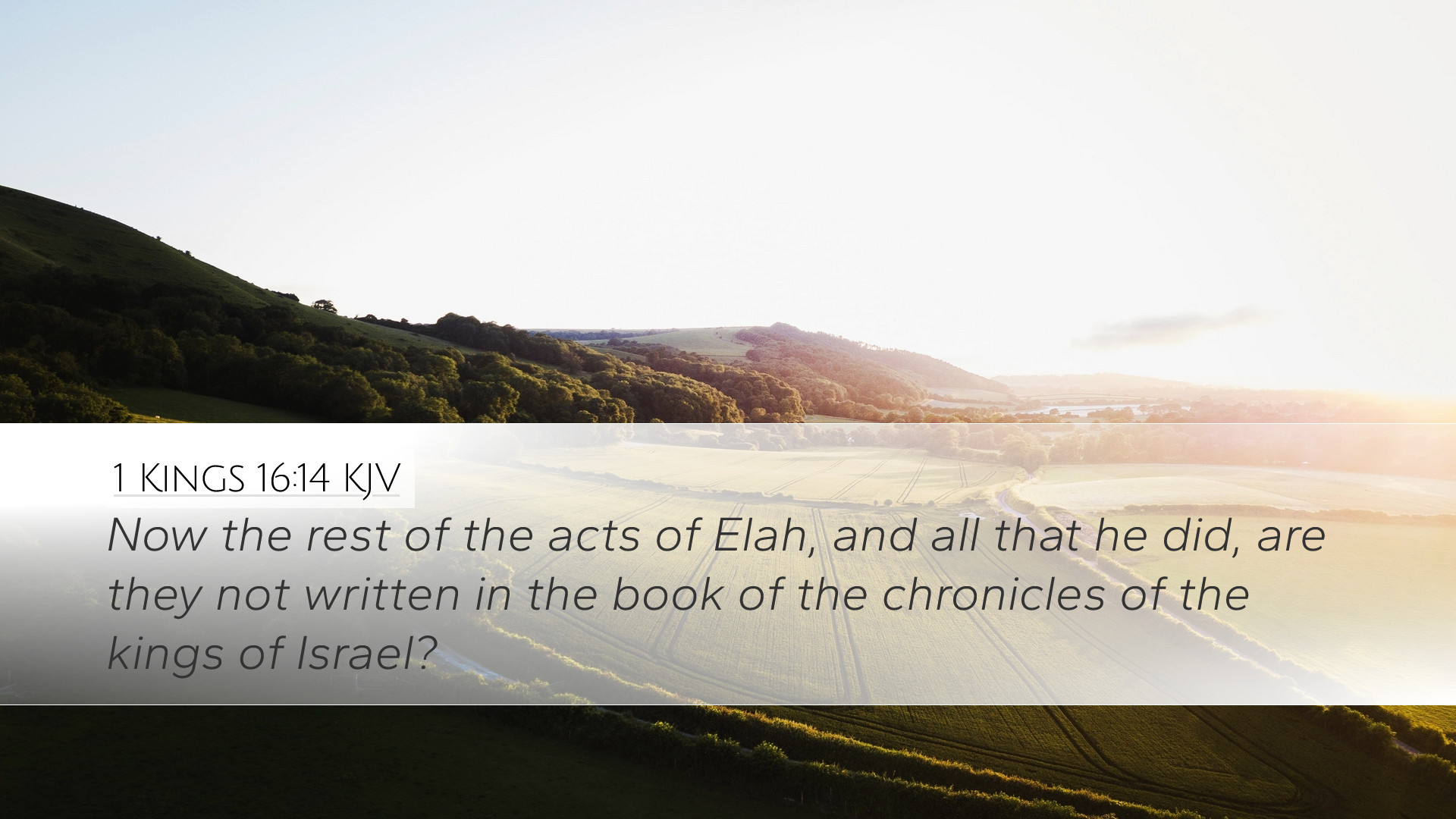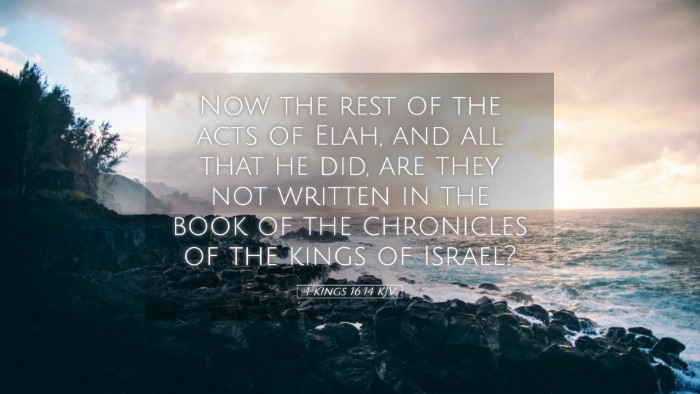Commentary on 1 Kings 16:14
Verse Text: “Now the rest of the acts of Zimri, and his treason that he wrought, are they not written in the book of the chronicles of the kings of Israel?”
Introduction
This verse serves as a concluding remark concerning Zimri’s brief reign and subsequent demise. It offers a moment to reflect on the broader context of Israel's leadership during a tumultuous period. The historical account in 1 Kings is rich with themes of leadership, treachery, and divine sovereignty, setting the stage for understanding the weight of Zimri's actions and their implications.
Commentary Insights
Historical Context
1 Kings 16 details a succession of kings who led Israel through a series of political upheavals. Zimri's reign was notably short—lasting only seven days—yet it was significant in how it illustrates the instability of Israel's monarchy during this era.
The Nature of Zimri’s Treason
- Zimri’s coup: He assassinated King Elah, his predecessor, while the king was in a drunken state. This act is a hallmark of treachery, indicative of a broader pattern of violence in Israel's kingship.
- Implications of Treason: The term ‘treason’ here signifies a betrayal not only of the king but of God's appointed order. This reflects the severe consequences of straying from God’s laws, a theme echoed throughout the Old Testament.
- Consequences: Zimri’s treachery exemplified the moral decline in a nation rejecting divine authority, leading to divine judgment which is seen later in his rapid downfall.
Literary Significance
This verse communicates more than mere historical data; it serves to emphasize the transient nature of power and the long-lasting consequences of rebellion against God’s order. Such chronicles serve as both a record and a warning.
Comparison to other Kings
- Contrast with David: Unlike Zimri, King David, despite his faults, sought God and repented. His kingship represents a time of relative stability and blessings from God.
- Lessons from Jeroboam: Previous kings, such as Jeroboam, set negative precedents. Jeroboam’s idolatry and revolt against God paved the way for further sin among successors.
Reflection on God’s Sovereignty
The brief mention of Zimri’s treason underlines that God's sovereignty persists even amid human unfaithfulness. Similar to the Psalms, where the rebellion of nations is brought before God, this verse highlights the futility of opposition against divine will.
The Book of Chronicles
The reference to the “book of the chronicles of the kings of Israel” serves a dual purpose:
- Historical Record: It indicates that Zimri’s actions were recorded for posterity, reinforcing the belief that history is under divine scrutiny.
- Moral Instruction: It acts as a reminder that every act, especially acts of treason against God and His anointed, will ultimately be examined and judged.
Theological Implications
This verse invites readers to consider the broader theological implications of kingship, authority, and rebellion. It challenges believers to reflect on the ways they may also challenge divine authority in their lives. The brevity of Zimri's reign serves as a caution against aligning oneself with worldly ambition devoid of God’s principles.
Conclusion
1 Kings 16:14 encapsulates the essence of human rebellion against God’s sovereign rule and the resulting chaos it can bring. For pastors, students, theologians, and scholars, this verse invites rigorous exploration of the principles of leadership and morality as depicted in the narrative of Israel’s kings. It reminds us that God’s sovereignty persists even in the face of human wrongdoing and serves to reaffirm the importance of faithfulness to divine assignment in all leadership roles.


